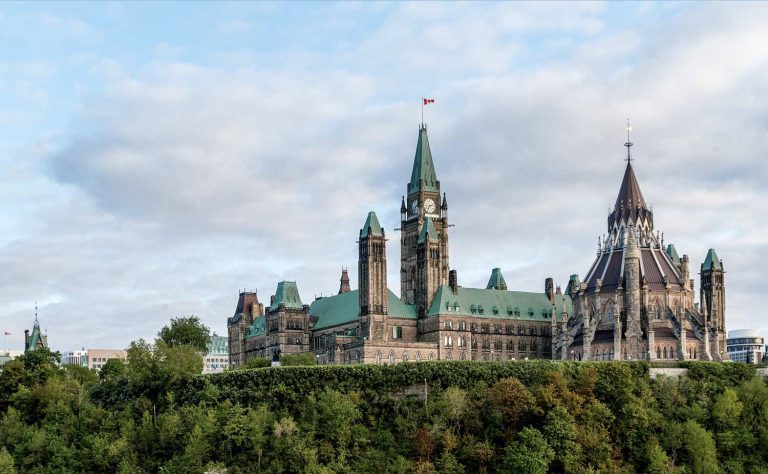News /
Canadian Chamber of Commerce AGM debates a unique look into the mindset of business and the real issues they face
Canadian Chamber of Commerce AGM debates a unique look into the mindset of business and the real issues they face
Last week, hundreds of business leaders from local chambers of commerce and boards of trade across the country gathered to propose, debate and adopt policies in support of their members: almost 200,000 Canadian business of all sizes on Main Streets across the country.

(OTTAWA) – November 2, 2021 — Last week, hundreds of business leaders from local chambers of commerce and boards of trade across the country gathered to propose, debate and adopt policies in support of their members: almost 200,000 Canadian business of all sizes on Main Streets across the country.
In all, nearly 700 business leaders and local chamber executives came together for a unique snapshot into the mindset of Canadian entrepreneurs and the issues most important to them.
“Distilling the aspirations and concerns of almost 200,000 businesses across Canada can be a challenging endeavour, but this year our members are laser-focused on what businesses are struggling with day-to-day. What keeps them up at night is a labour crunch, their balance sheets after four lockdowns, taxation that supports growth rather than limiting it, and how to make the transition to net zero easier and more efficient,” said Perrin Beatty, President and CEO of the Canadian Chamber of Commerce.
The annual Canadian Chamber of Commerce Annual General Meeting (AGM) is one of the largest gathering of business leaders in Canada. In all, 56 new policies were adopted over two days of debates between October 27 and 28. The proposals adopted will form the backbone of the Canadian Chamber’s advocacy efforts with the federal government in 2022.
On the topic of Canada’s labour challenges, Dr. Parag Khanna, the founder of FutureMap and acclaimed expert in geopolitics and globalization, delivered a keynote address to the delegates about the coming war for talent that would be accelerated and exacerbated by climate change. Dr. Khanna noted that countries prioritizing immigration will be the winners of the 21st century, as a global talent war will cut across all sectors and all rungs of the value chain. He believes Canada is good at attracting talent globally and that we already have a good reputation as an immigration destination. To view Dr. Khanna’s remarks, click here.
In a fireside chat with the Honourable Chrystia Freeland, Minister of Finance and Deputy Prime Minister of Canada, Mr. Beatty and Minister Freeland discussed the separate roles of business and government in the recovery, and the critical importance of a vibrant private sector.
On the issues of tax competiveness, recovery from COVID-19, and net zero, the central themes of the debates and broader discussions within expert panels were summarized by Mr. Beatty’s closing remarks for the AGM.
“Day by day, it is becoming increasingly clear the recovery will, and indeed must, be led by the private sector. We cannot borrow our way to prosperity and we cannot confuse government spending with economic growth. We need to get very serious about growth if we are to have any hope of paying for our enormous pandemic debt and dealing with the coming costs of climate change. With public finances stretched to the maximum, growing businesses that hire more Canadians is the only path towards true recovery and sustainable economic growth,” Beatty concluded.
The AGM also featured a series of panels on topics that are top-of-mind for small businesses.
Alla Drigola Birk, Director, Parliamentary Affairs & SME Policy, moderated a panel on Rebuilding Small Business and noted “small businesses continue to operate in two realities simultaneously. On the one hand, they’re still reeling with the after-effects of the pandemic, or in some cases with ongoing public health restrictions. On the other hand, they’re trying to reimagine their businesses once again for a new normal that has not yet fully arrived. Hybrid operations are here to stay, and the next challenge for small businesses is figuring out how to ensure their business models successfully fit in the new normal while continuing to attract new customers and clients.”
A Digitalization of Small Business panel was moderated by Ulrike Bahr-Gedalia, Senior Director, Digital Economy, Technology & Innovation, who found that “as these small businesses move towards increased digitalization, their digital journey isn’t too different from that of larger organizations. While they might experience different challenges or confront them differently, there are many similarities with their larger peers, and in fact, their global peers as well. Everyone feels the talent crunch and most are no stranger to cyber incidents.”
Leah Nord, Senior Director, Workforce Strategies & Inclusive Growth, led a panel on Building an Inclusive Recovery, where the key themes were “the combined impact of social change and acute talent shortage that have accelerated the advancement of diversity and inclusion policies in businesses of all sizes. Most businesses are finding it’s a journey, and being realistic with your business’s starting point can help drive engagement from your people, who are now likely your most valuable resource, both from a commercial sense and to help make your workplace culture more welcoming.”
A panel on the topic of the New Normal was moderated by Mark Agnew, Senior Vice-President, Policy and Government Relations. He noted “we’re at a transformational time as businesses of all sizes try to figure out their way through to the new normal. Companies are keen to ensure their workforce is able to collaborate and that employees can feel safe returning to the office, while at the same time navigating supply chain disruptions such as the increased cost of shipping.”
For more information about the policy priorities of the Canadian Chamber of Commerce, click here.
About the Canadian Chamber of Commerce – Because Business Matters
The Canadian Chamber of Commerce helps build the businesses that support our families, our communities and our country. We do this by influencing government policy, by providing essential business services and by connecting businesses to information they can use, to opportunities for growth and to a network of local chambers, businesses, decision-makers and peers from across the country, in every sector of the economy and at all levels of government, as well as internationally. We are unapologetic in our support for business and the vital role it plays in building and sustaining our great nation.
-30-
For more information, please contact:
Phil Taylor Emily Wash
ptaylor@chamber.ca ewalsh@chamber.ca
Other News

The Cost of Canada-U.S. Trade Disruption on Full Display with New Trade Tracker

Canadian Chamber Statement on Harmful Uncertainty Relating to Capital Gains




